
MBBS, FACD, FACCS
Dr. Michael Rich
Dermatologist & Clinic Founder (MED0001017669)
Dr Michael Rich is a specialist dermatologist who has been performing tumescent liposuction for over 30 years. Find out if Liposuction is suitable for you at ENRICH Clinic.
At ENRICH Clinic, we have a wide range of dermatological and cosmetic body treatments tailored to individual body and patient needs.
At ENRICH Clinic, our treatments are performed by our medical team consisting of doctors, nurses, and dermatologists and are tailored to each patient’s skin health needs.
ENRICH Clinic is committed to your skin health and well-being with a range of dermatological & cosmetic treatments tailored to the individual. Our treatments are performed by our medical team consisting of doctors, nurses, and dermatologists.
Skin health is essential for everyone. ENRICH Clinic has a wide range of technologies and dermatological solutions to help you achieve your skin care goals.
Skin checks are important as they can often find skin issues before they become dangerous or cancerous. Living in Australia, which is one of the top countries in the world for skin cancer occurrences, an annual skin check should be part of your health routine. All in all, it’s just good practice.
We have three dermatologists Dr Michael Rich, Dr Lena Ly and Dr Charles Xie, at ENRICH clinic and they all perform skin checks in Melbourne.
At ENRICH Clinic we believe skin checks are the key to halting skin cancer in Australia. Whilst genetics and the fact that our harsh Australian sun plays a major factor in our skin health, early detection is key.
Dr Rich was one of the founders of Skin and Cancer Foundation of Victoria (now Skin Health Institute) and is a leading expert in treating high risk melanomas. Dr Charles Xie has special interests in skin cancer diagnosis and management having a Masters research in diagnosis and prognosis of melanoma and publishing in multiple dermatology journals. Dr Lena Ly to has a strong interest in skin cancer and has undertaken numerous research projects within the field. You are in very good hands.
A dermatologist is a specialist skin, hair and nail doctor who has completed not only their medical degree, but several extra years of training. There’s the first six years in regular medical training, plus being a junior doctor for on-the-job experience, then five more years of specialist skin, hair and nail training.
Not everyone can be a dermatologist – acceptance is based on very strict requirements, and entry is very competitive.
Skin Specialist …… Skin Cancer …. Makes sense.
Your skin is closely looked at by a dermatologist, section by section. Any anomalies are recorded. A “skin shave” or biopsy is performed during a skin check if there are any areas that look like they could be pre-cancerous. Sometimes, a small area may be treated with liquid nitrogen to remove early pre-cancerous changes.
A skin check can take around 15-30 mins depending on what is required per patient.
Any time is a good time for a skin check! Pre summer is an opportune time to get a skin check because you’re usually as pale as you’ll ever be and any spots will be more prominent. This way you can get a base map for your skin so that in a year, you’ll have something with which to compare it.
The starting point for a skin cancer is when abnormal, DNA-mutated skin cells proliferate unchecked. There is evidence that this process continually occurs throughout our entire body, but the immune system kicks in and arrests the growths.

When skin cancer is allowed to continue to develop –that is, the abnormal cells multiply until there are so many they make a lesion – it is the beginning of danger. Skin cancer often begins in the skin’s outer layer, known as the epidermis. The thin epidermis is a layer of cells that continuously shed, making way for the new cells. The epidermis is made up of three different types of cells: squamous, basal and melanocytes.
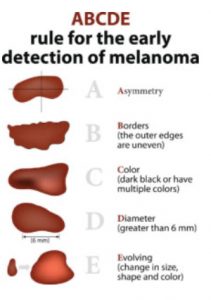 There are three major categories of skin cancer:
There are three major categories of skin cancer:
Basal cell and squamous cell carcinomas are known as non-melanoma cancers, and are the most common skin cancers in Australia, though they do not pose a great risk of death like melanomas do. Over 750,000 Australians will be treated for non-melanoma skin cancers every year, but the survival rate is very good.
Early detection is key.
The best skin cancer treatment is early detection and prevention. Wearing 50+ sunscreen every day on you face and arms (especially your driving arm) is an important part of skin cancer prevention. Bonus, 50+ sunscreen is also the best anti-aging treatment!
If a skin cancer does develop, they can be treated, removed, excised numerous different ways. Treatment is dependent on the location, depth and other factors connected with a cancer.
Call us today on 9500 9500 to book your skin check in Melbourne today!
The main cause of skin cancer is skin cells damaged by UV rays emitted by the sun. With our dissipating ozone, more damaging rays are making it to the earth, where they are absorbed by our skin cells and damage DNA.
Skin cancer prevention is, therefore, a matter of protecting your skin from these damaging UV rays by wearing protective clothing, hats and sunscreen when outside or near reflective surfaces like windows or water.
Some skin cancers couldn’t have been prevented, but sun damage is the most common, preventable reason. Your best UV protection methods include:
Your best next step is to see your GP who can refer you to our specialist clinic, or you can simply call and make an appointment with us directly. There is no need to get a referral in most cases; however, it can pay to take advantage of Medicare rebates in certain situations.
Getting regular skin checks, especially if you see a mole changing its appearance, is critical for catching any issues quickly and dealing with them promptly. Unchecked lesions can continue to develop without treatment, leading to potentially worse outcomes.
Certain predisposing factors can run in families, for example, having very fair skin or many moles. These factors don’t mean you will develop skin cancers, but if you are in a high-risk group, regular skin check-ups are essential.
Check around in your family to get an idea of what your familial risk factors are. See your specialist dermatologist for regular checks and receive a further analysis of your risk factors.
It’s never too early to start caring about your skin and keeping tabs on moles. When we’re young, we don’t have as many moles, but as we get older, mole numbers increase. Start now!
We develop cancerous tumours throughout the body constantly, but our immune system kicks into gear and eradicates them. It’s only when a tumour gets out of control that the body can’t hit CTRL+Z.
It is therefore unusual for skin cancer to resolve on its own once it reaches a certain point, which is way beyond what the body can cope with on its own. It is best to get immediate, thorough treatment, especially for melanomas, which can be deadly.
We do not recommend home remedies for skin lesions. Accurate diagnosis and treatment with scientific evidence behind it is the most reliable treatment. Treating yourself at home with unproven remedies could be dangerous to your health, especially if you have a melanoma that has spread to other tissue in your body.
While home remedies may be cheap and seem like a good idea, we recommend you visit the clinic for an accurate diagnosis and treatment options. Waiting for longer while you try to cure a lesion at home on your own may result in precious time wasted. Need a skin check? Book now.
When we take a biopsy, we are taking a small amount of tissue as a sample. By its very nature, this sample-taking requires us to break the skin, which causes minor discomfort. We use an anaesthetic cream to make your biopsy as comfortable as possible. Most people find the process very tolerable and thankfully it’s very quick. We only take a very small amount of tissue.
A biopsy breaks the skin to take a sample, so it does require healing over with scar tissue. The biopsied area is very small, however, so the scar will fade quickly and naturally over time. We do not expect a lasting visible scar from a biopsy and will offer you our healing tips to ensure a seamless mend.
If you have keloid scarring develop from any break in the skin, a very red or purple raised scar, then make sure you tell us beforehand so we can take precautions.
Assessments and tests will determine the treatment most appropriate for you. Each type of cancer has specific ‘best’ treatments, but the grade of cancer will be of the most importance in terms of treatment.
The most common treatment is first to remove the lesion. More extensive treatments may be required, such as chemotherapy or radiation therapy, especially if the cancer has spread. Most cancers are easily removed with no more treatment required, but frequent check-ups are important.
Skin cancer is not transmissible. You can’t give it to someone else, or get it from someone else. Cancer is a proliferation of abnormal skin cells, which develops within your own body.
Viruses are responsible for some forms of cancer and are thus in some ways deemed contagious. One of the best examples of this is the human papillomavirus (HPV) that causes cervical and other types of cancer. The HPV virus is transmissible via skin contact. There is no evidence that viruses or microbes cause skin cancers (at this stage – future research may prove otherwise!).
The first treatment of removal of the lesion doesn’t come with any side-effects besides regular healing, but chemotherapy and radiation therapy come with a whole host of side-effects that range from tolerable/merely unpleasant to downright awful.
Your side-effects are related to the chosen treatment since there are many kinds of chemotherapy and dosing. Talk to your doctor about what to expect from treatments. Book a consultation with us.
Sometimes skin cancers can return at the same site or a different place. Regular checks can help keep tabs on your skin. Book a skin check now.
Each treatment comes with a unique risk profile, so speak to your doctor about what to expect. We’ll fully inform you of what to look out for, in the case that something unusual occurs.
A lesion going undiagnosed and untreated is the greatest risk. It may turn out to be nothing, but it’s better to know.
You do not need a referral to visit our clinic for a mole or skin check; however, in some cases, it’s smart to get a referral from your doctor to make the most of Medicare benefits.
We will take a biopsy and may remove the lesion in your appointment. If the biopsy comes back clear, then we do nothing. If the biopsy seems suspicious, we will offer treatment.
Once the lab has your biopsy sample, they will process it. We expect 1-2 weeks usually, but we will advise you of how quickly the lab will process your test and give us the results. We’ll call you to schedule another appointment unless you’ve already made one, to discuss your results.
When you come into the clinic for a full skin check, we need to be able to see your bare skin to get an accurate visual check. You may need to fully or partially undress; however, we’ll work with you if you are shy, to make sure you are very comfortable. If you want a doctor of a specific gender, we will make sure that happens. You keep your underwear and bra on.
No, mole mapping is a fully external visual examination with nothing to cause any pain.
If you have a suspicious lesion, you will need to come back for your results. If you are having treatment, we will need regular check-up appointments. We recommend annual check-ups for everyone.



*With all surgeries or procedures, there are risks. Consult your physician (GP) before undertaking any surgical or cosmetic procedure. Please read the consent forms carefully and be informed about every aspect of your treatment. Surgeries such as liposuction have a mandatory seven-day cooling-off period to give patients adequate time to be sure of their surgery choice. Results may also vary from person to person due to many factors, including the individual’s genetics, diet and exercise. Before and after photos are only relevant to the patient in the photo and do not necessarily reflect the results other patients may experience. Ask questions. Our team of dermatologists, doctors and nurses are here to help you with any of your queries. This page is not advice and is intended to be informational only. We endeavour to keep all our information up to date; however, this site is intended as a guide and not a definitive information portal or in any way constitutes medical advice.
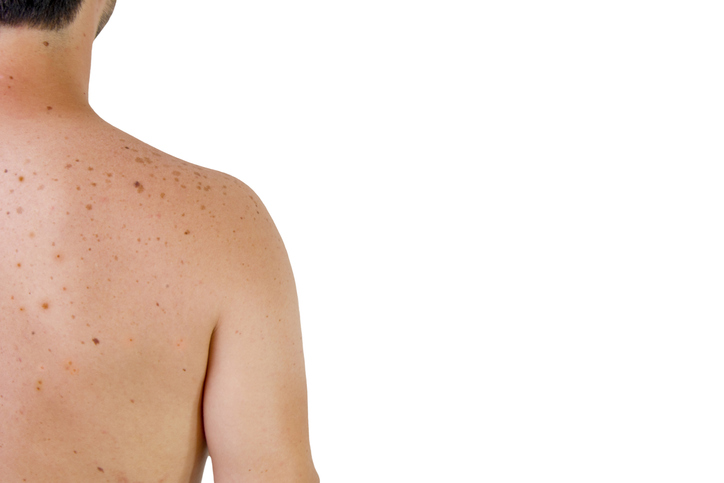
Discover why men are more likely to be diagnosed with skin cancer than women and what you can do to lower your risk.

Here in Australia, when working outdoors you must make looking after your skin a priority. We can help with your skin health.

In this article, we take a look at some of the information around melanoma, the process you go through after being diagnosed, and the best ways to proceed.
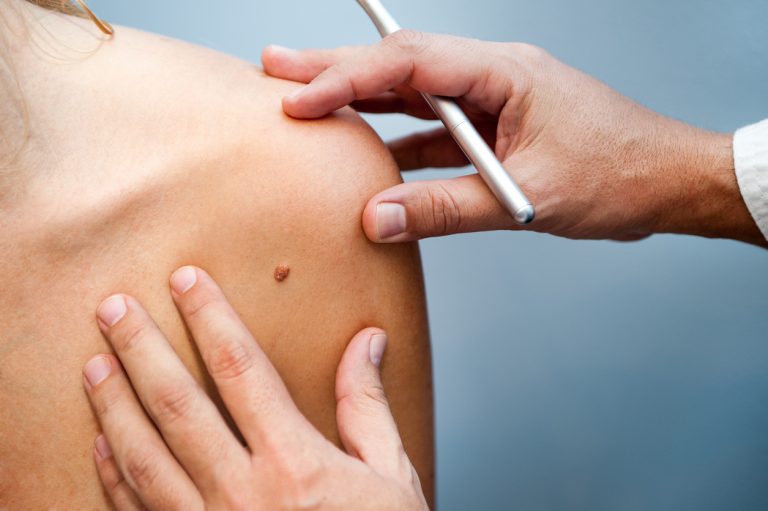
Non-melanoma skin cancers (keratinocyte cancers) are the most common form of cancers in Australia and are generally not life-threatening
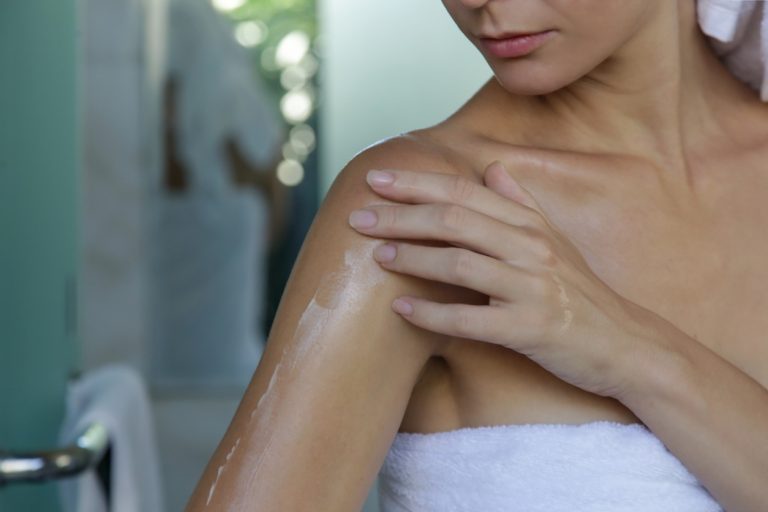
There are so many reasons making your own products at home is a great idea, but when it comes to sunscreen, the jury is out: don’t do it!
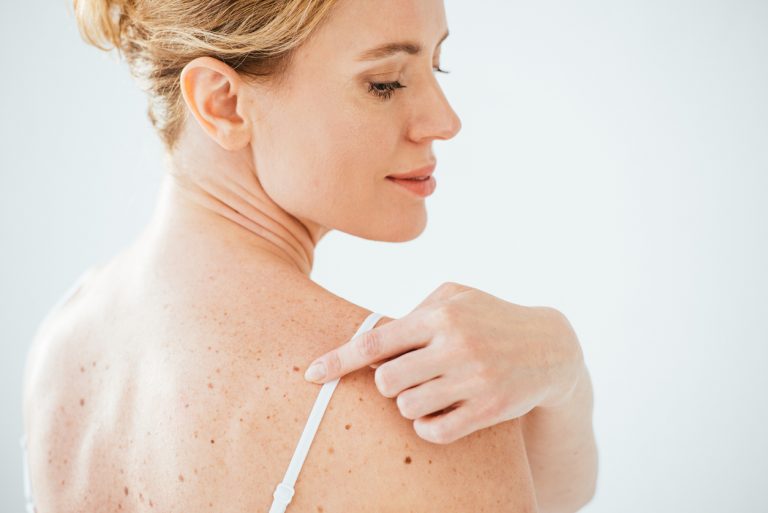
Keeping yourself safe with regular skin checks can keep you safe, so don’t forget to book your appointment before summer!
"*" indicates required fields
Subscribe to the ENRICH newsletter and receive latest news & updates from our team.
Enrich Clinic acknowledges the Traditional Lands of the Wurundjeri Woi Wurrung and Bunurong peoples of the East Kulin Nations on which we work and trade. We pay respect to their Elders past, present and emerging. We extend our acknowledgement and respect to the LGBTQIA+ community who we welcome and support. Read our full Acknowledgement Statement here
